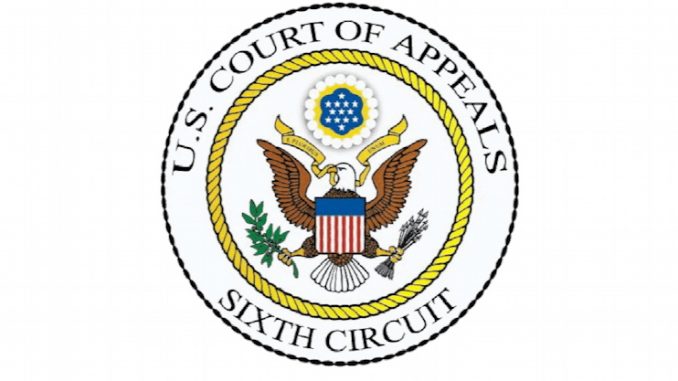
COLUMBUS, Ohio (AP) — A federal appeals court on Friday upheld a judge’s order blocking death row inmates from information about Ohio’s new lethal injection process.
The 2-1 decision by the 6th U.S. Circuit Court of Appeals will help determine whether Ohio will proceed with its first executions in three years beginning in February. Attorneys for condemned inmates had challenged the order.
Ohio plans to execute Ronald Phillips on Feb. 15 for raping and killing his girlfriend’s 3-year-old daughter in 1993. Another execution is scheduled for April.
Judge Eugene Siler, writing for the majority, said a judge didn’t abuse his discretion last fall when he barred the release of information about Ohio’s new lethal injection process requested by attorneys for Phillips and other inmates.
Those attorneys can still pursue their challenge of lethal injection drugs in the process, including taking the state up on its offer to provide samples for testing, Siler said.
Although knowledge of drug facilities and handlers could help defense attorneys test the drugs, “the harm presented by identification of those intimately involved in an execution outweighs the speculative benefit of complete understanding of an industry already heavily regulated,” Siler said.
In a dissent, Judge Jane Stranch said the judge’s order shields from attorneys “a vast array of information” from the qualifications of the execution team to how Ohio obtained the drugs.
“In sum, they do not have the information they need to ensure that the testing is adequate or that the executions will be carried out in a constitutional manner,” Stranch wrote.
The state prisons agency said it was reviewing the ruling and awaiting an expected follow-up decision by a lower court judge, who put executions briefly on hold until the 6th Circuit ruled.
A message was left with the lead attorney challenging the judge’s order.
At issue before the court were new efforts Ohio is making to shield information about lethal injection in hopes of jump-starting executions, which have been on hold since January 2014. That’s when it took condemned inmate Dennis McGuire 26 minutes to die from a never-before-used two-drug method while he repeatedly gasped and snorted.
Last fall, now-retired Judge Gregory Frost issued a protective order that said Ohio’s need to obtain supplies of lethal drugs outweighed concerns by death row inmates that information about the drugs, including names of the manufacturers, is needed to meaningfully challenge them.
Friday’s ruling upheld Frost’s order.
Defense attorneys argued they couldn’t meaningfully challenge the use of the drugs without the information being shielded. They also said the secrecy protections are unnecessary given the history of lawsuits over lethal injection in Ohio.
The attorneys also said federal rules for obtaining evidence should take precedence over a state law trying to shield that evidence.
For its part, the state cited defense attorneys’ “wildly exaggerated and misplaced arguments” to say that the protective order should stay in place.
The state’s interest in keeping lethal injection information confidential far outweighs death row inmates’ right to the release of that information, the state said.
The Department of Rehabilitation and Correction in October announced plans to use a new three-drug combination — midazolam, rocuronium bromide and potassium chloride — for at least three executions.
Andrew Welsh-Huggins Associated Press


Be the first to comment